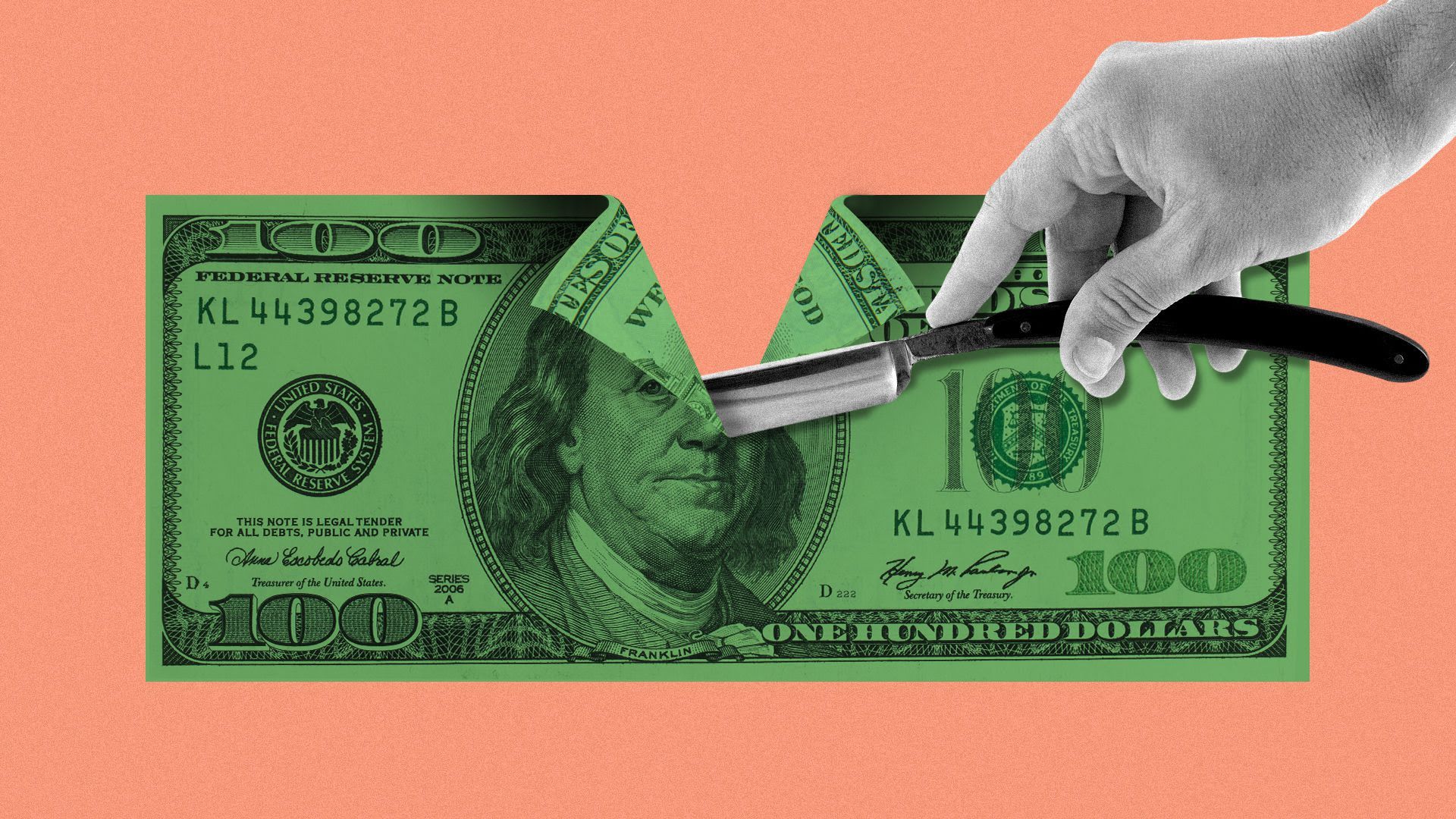
Razor-maker Harry's last May agreed to be acquired for $1.37 billion by Schick parent Edgewell and, for the next six months, there were few concerns at either company.
But, but, but: Shortly before Christmas, everything changed. "[Regulators] started asking different sorts of questions, and you could see where they were heading," says a source familiar with the situation.
- On Jan. 16, Harry's co-CEO Jeff Raider posted a pro-merger argument via Medium, which suggests he felt the writing was on the wall.
- On Monday, the Federal Trade Commission said it will sue to block the deal, believing that it would further strengthen a duopoly between Edgewell and market leader Procter & Gamble.
- The FTC argues the direct-to-consumer business of Harry's and rival Dollar Shave Club did little to lower industry prices or spur innovation, but rather those things happened in 2016 when Harry's entered physical retail.
- Read the FTC's full administrative complaint.
Sources say that Edgewell and Harry's haven't yet decided on next steps, but expectations are that they'll fight this in court. And, if so, expect them to be emboldened by the FTC's recent failure to block a merger of hydrogen peroxide companies, with a judge ruling that the agency's argument amounted to an "oversimplification."
- The FTC's new complaint mostly ignores the impact of Dollar Shave Club, which was purchased for $1 billion in 2016 by Unilever — suggesting that its business model was already viewed as appealing before either it or Harry's moved big into physical retail.
- Plus, it's odd to argue duopoly when a company with such major resources as Unilever is now involved. Let alone the recent, U.S. entry of South Korea's Dorco, which also supplies razors to Dollar Shave, or the continuing presence of Bic (which is working on a connected razor product, speaking to the innovation angle).
- And don't forget about Billie, the brand focused on women, that P&G recently agreed to buy (possibly to take it off the antitrust chessboard, or perhaps as a strategic replay of the mid-1980's soda wars).
The bottom line: One possibility is that the FTC is missing the boat on direct-to-consumer. Another is that this is actually its way to test the limits of omnichannel retail, maybe as a precursor to future actions against giants like Amazon. But no matter the backstory, this one will come down to the numbers — particularly pricing — and each side thinks it has the data to prove its case.
Go deeper: FTC's move to block Harry's deal could impact ad spending
Sign up for the Axios Pro Rata newsletter
Stay on top of the biggest deals in venture capital, private equity and M&A

https://news.google.com/__i/rss/rd/articles/CBMiYGh0dHBzOi8vd3d3LmF4aW9zLmNvbS9lZGdld2VsbC1oYXJyeXMtbWVyZ2VyLWJsb2NrLWZ0Yy00NTBiOTQ1My04MjJkLTRhZjQtYjFkZi0xNzE2ZTAxMWNlODguaHRtbNIBYGh0dHBzOi8vYW1wLmF4aW9zLmNvbS9lZGdld2VsbC1oYXJyeXMtbWVyZ2VyLWJsb2NrLWZ0Yy00NTBiOTQ1My04MjJkLTRhZjQtYjFkZi0xNzE2ZTAxMWNlODguaHRtbA?oc=5
2020-02-04 17:25:00Z
52780589622311
Tidak ada komentar:
Posting Komentar